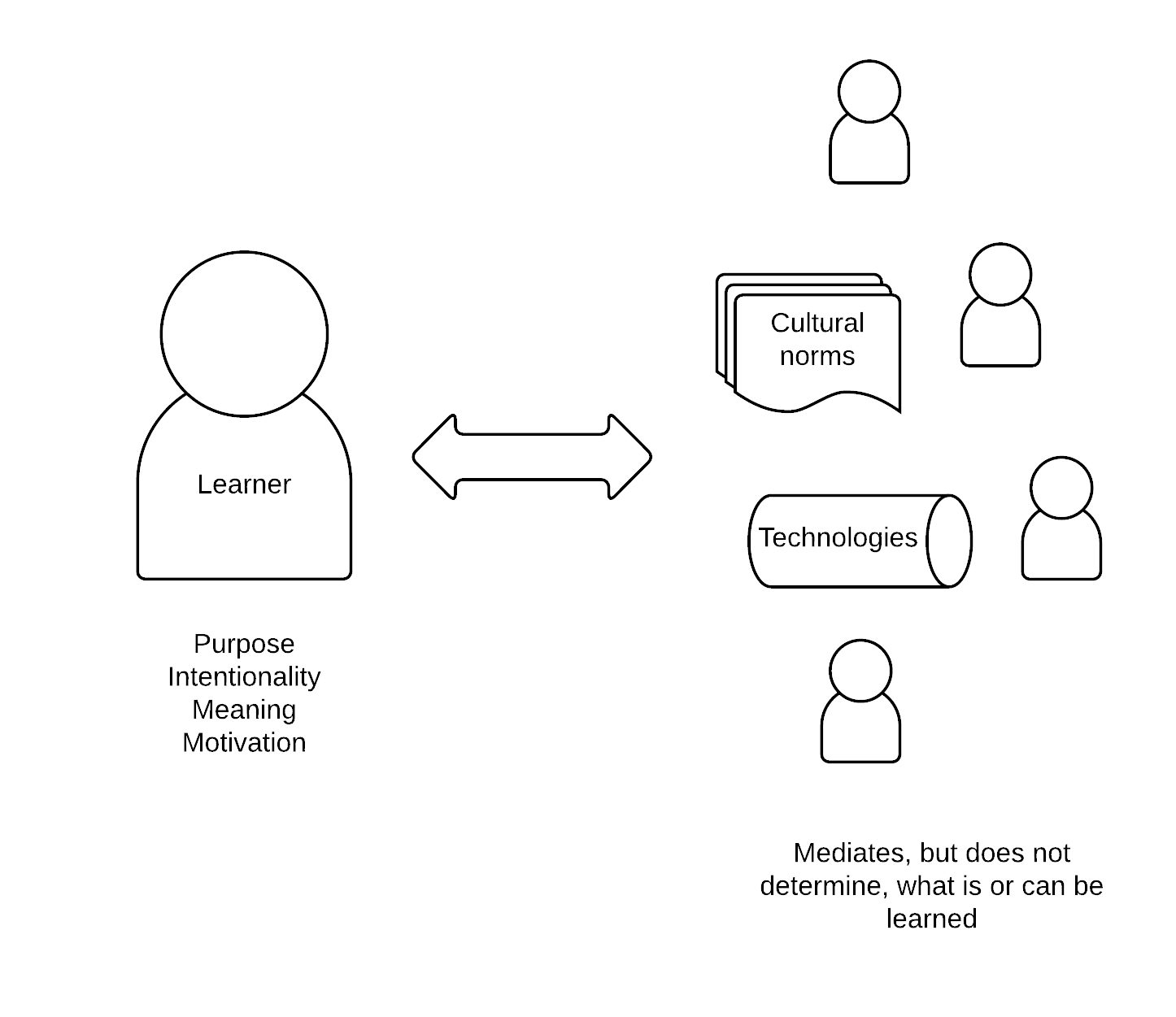My recent reading has taken me into the social nature of learning and the role of culture in human learning. In many ways, what I read challenges the assumption that is deeply embedded in educational practice that knowledge is an individual phenomenon and that it is created with the brain of individual humans.
Clearly, there is a role in experience stored in our brains as a fundamental aspect of learning, but I am convinced it is incomplete and inaccurate to credit changes neurons exclusively as the only source of an individual’s knowledge.
I am starting to see human knowledge as the capacity of an individual to access and use and create information (in its many forms including explicit, tacit, and episodic) wherever it exists in the environment (including the social, technological, and natural environments).
- The environments create the solution spaces of human knowledge. We use what exists (as hard or soft technologies) to think and know.
- Individual humans introduce purpose, intentionality, motivation, and meaning to the interactions that produce new knowledge.
- Creativity is a reorganization of what exists in the environments to create something new (and often initially incongruous) that happens within a learner and that is then reflected back into the environments.
